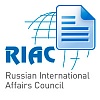Religion is Important for 18% of Russian People, but Religiosity Levels are Higher in Germany, Poland and the U.S.
In
Login if you are already registered
(no votes) |
(0 votes) |
Day Figure
Author: Andrey Kortunov, Director General of the Russian International Affairs Council
The confrontation between western humanitarian secularism and Russian religious traditionalism is viewed as a manifestation of the value gap between Russia and the West. It is believed that the West has lost its Christian foundations, while Russia remains the stronghold of the basic values of Orthodoxy (and to some degree, Islam).
However, a recent study of the comparative level of religiosity in the world shows a different picture. According to the study, religion is very important for 18 per cent of Russian people, while 57 per cent of respondents said that religion played a relatively important role in their lives.
These numbers are higher than in the United Kingdom (18 per cent and 42 per cent, respectively), Japan (13 per cent and 41 per cent) and France (10 per cent and 37 per cent). However, they are lower than in Germany (22 per cent and 57 per cent), Poland (29 per cent and 79 per cent), and the United States (55 per cent and 85 per cent). It is the United States, and not Russia, that is the “religiosity leader” of the developed world.

Developing countries report much higher levels of religiosity, which is illustrated by Brazil (75 per cent and 87 per cent), India (72 per cent and 89 per cent), Turkey (84 per cent and 94 per cent), Nigeria (94 per cent and 97 per cent) and Pakistan (95 per cent and 98 per cent). Indonesia has the world’s highest level of religiosity, at 95 per cent and 99 per cent, respectively.
The study also shows that predominantly Muslim countries are on the whole more religious than Christian countries; older respondents are more religious than the younger generation; and that, on average, religion is more important for females than it is for males.

Data
— Pew
(no votes) |
(0 votes) |




